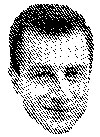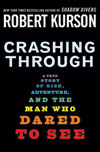Arthur Phillips startled the literary world in 2002 with his wry début novel, Prague. Then 33, Phillips had no prestigious writing background, just a history education from Harvard and some peripatetic life experiences (most notably, he had been a five-time champion on Jeopardy!). The wildly enthusiastic reviews garnered for Prague were augmented two years later with The Egyptologist, an international bestseller translated into more than 20 languages. Now there’s the eagerly awaited novel number three: the über-eerie Angelica, part thriller, part ghost story, 100 percent psychosexual puzzle set in Victorian England. Victoria Lautman chatted with Arthur Phillips, who spoke by phone from his home in Brooklyn. Q: Your earlier books snagged reviews riddled with words like “dazzling” and “astonishing.” There must be lofty expectations for Angelica.
Q: Your earlier books snagged reviews riddled with words like “dazzling” and “astonishing.” There must be lofty expectations for Angelica.
A: I’ve been wrong twice and have no idea what will happen. Who likes a book and why seems to be a mysterious, semireligious event, and my international success has been really surprising. For instance, The Egyptologist sold more copies in Italy than the U.S. It’s so strange: a book will hit huge in one country, then collapse in the next. Who could have predicted that an American-written ancient-Egyptian comedy could make it big enough to be translated into Slovakian or Czech? And my Estonian edition just arrived.
Q: As for Angelica and how it might be described: we’ve got roving specters, intimations of pedophilia, vivisection, carnal desire, madness-all set in 19th-century London.
A: There you go-that’s as good back-flap copy as I’ve heard! The lesson I learned from The Egyptologist is that, if people think it’s going to fit into a specific genre, they get mad if it doesn’t. So everyone who heard it described as a mystery thought, “This stinks.” Now I’m hesitant to describe Angelica as a ghost story, although it happens to have a ghost in it. I don’t actually know what to call it. How about a Victorian “dramedy” about shifting perspectives?
Q: There are shifting perspectives, all right: four utterly different points of view. And the story doesn’t go where the reader thinks it will.
A: I’d be very happy to have that be a description of all my books.
Q: There’s no obvious similarity with The Egyptologist, and yet I can’t help wondering if you have a particular preoccupation with sex, death, and the afterlife?
A: Hmm. I suppose I am preoccupied with those things, and since you’ve brought it up I can’t think of anything else. But they’re tough subjects to avoid.
Q: Still, the naughty bits are all only implied in Angelica. You manage to avoid any explicit erotic language. It’s all very Victorian.
A: The only research I did for the book was to read author Peter Gay, who’s done a vast amount of work on middle-class Victorian life. He’s gone to great lengths to break down those stereotypes of the “repressed, alienated Victorian.” But I have to say that I do enjoy the oblique aspect, and amusing sexual euphemisms just kill me-I don’t know why.
Q: You’ve been an actor, a jazz musician, a speechwriter, a failed entrepreneur. You have a degree in medieval history and there’s that stint as game-show champion. What fostered your writing career most?
A: As a writer, you draw on all experiences, and everything you’ve ever done contributes, but the single most useful thing for me was when I was a speechwriter. It was writing fiction. I wrote characters and internal monologues; I always had to imagine how various people thought or expressed themselves. It was the very best fiction workshop I could ever imagine!
From Our Contributors
In 46 years, Mike May has assembled an impressive résumé. He’s a champion speed skier, has worked for the CIA, and once lived in a mud hut in Ghana.
And he accomplished it all while blind, the tragic outcome of an accident with an explosive powder at age three.
 Then, one well-lived life later, the unimaginable: May became a candidate for a brand-new, extremely rare stem cell transplant that could restore his vision. No one was able to predict just how much sight would return, much less what the psychological ramifications would be. In the handful of times patients’ vision had been restored, they fell into severe depression after seeing the world’s grim reality behind all the glorious colors: chipped paint, homeless people, death and despair.
Then, one well-lived life later, the unimaginable: May became a candidate for a brand-new, extremely rare stem cell transplant that could restore his vision. No one was able to predict just how much sight would return, much less what the psychological ramifications would be. In the handful of times patients’ vision had been restored, they fell into severe depression after seeing the world’s grim reality behind all the glorious colors: chipped paint, homeless people, death and despair.
In 2004, Chicago contributing editor Robert Kurson met May, whose brain was no longer wired to recognize and interpret images since his sight had been lost at such a young age. For May, “seeing” was like learning a foreign language: a stammering, tiresome, piece-by-piece process nothing like a sighted person’s fluency.
“It always struck me as a very fascinating idea that much of vision is related to knowledge,” says Kurson, the author of the critically acclaimed Shadow Divers.
In Crashing Through (Random House, $25.95), out this month, Kurson chronicles May’s struggle between science and soul, as he experiences the incredible-and incredibly overwhelming-sighted world for the first time in four decades. “Puzzle-piece shaped objects, ablaze in light and color, kaleidoscoped onto his eye,” writes Kurson, “an arm’s length and miles away simultaneously.”
–Carrie Napolilli


